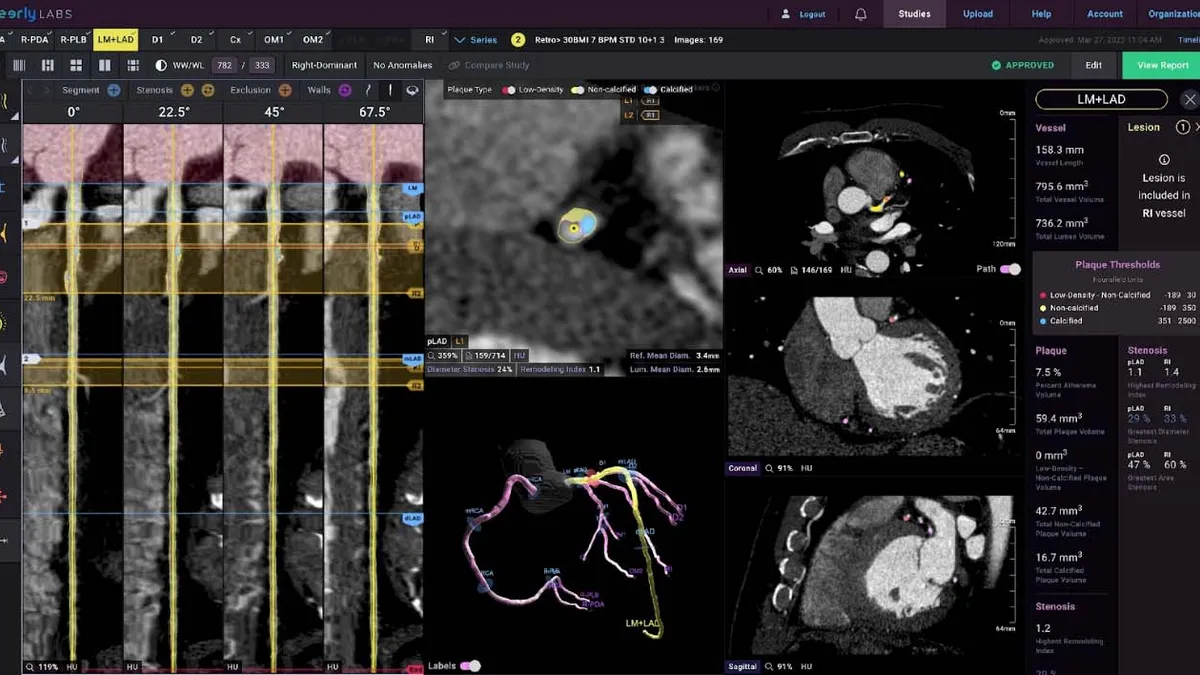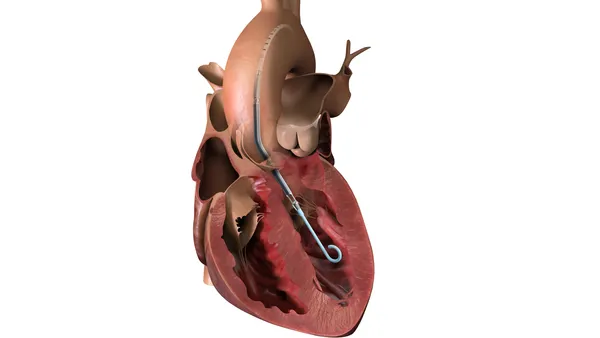Dive Brief:
- Cleerly said Wednesday it has raised $106 million to scale the commercialization of a machine learning tool that generates a 3D model of patients' coronary arteries.
- The artificial intelligence-driven tool uses coronary computed tomography angiography (CCTA) to noninvasively measure plaque, vessel narrowing and the likelihood of insufficient blood flow.
- Cleerly has generated evidence that shows its system is better than experts at assessing vessel narrowing, plaque volume and composition, helping it to secure Medicare coverage for the technology.
Dive Insight:
CCTA enables physicians to noninvasively assess the risk of patients with coronary artery disease. The imaging technique, which is recommended in clinical guidelines, facilitates evaluation of atherosclerosis to determine the likelihood of disease progression and cardiovascular events. However, whole heart quantitative CCTA analysis is a skilled and time-intensive task.
Cleerly has developed a tool to automate CCTA analysis using 10 million images of 40,000 patients. The company has validated the technology in multi-center trials, showing its equivalence to other techniques and ability to reduce the need for invasive testing. One study that used the technology as a gatekeeper to detect vessel narrowing tracked an 86% reduction in invasive coronary angiograms.
A recent analysis of more than 3,500 people enrolled in Cleerly’s registry showed the potential for AI to provide a better understanding of plaque morphology. The insights could inform treatment strategies, but a randomized trial would be needed to show if tailoring therapy to the findings improves outcomes.
Investors committed $223 million to Cleerly in 2022. The latest financing extends that round, giving the company a further $106 million from backers including Insight Partners and Battery Ventures. Cleerly will use the money to scale its commercial growth and clinical evidence generation.
The financing follows the initiation of coverage by several Medicare administrative contractors on Nov. 24 and the establishment of a current procedural terminology (CPT) service code that will take effect in January 2026.
Cleerly CEO James Min said in a statement that the use of the funding for commercialization “is especially germane” following the Medicare coverage and a CPT category I code for advanced plaque analysis.













